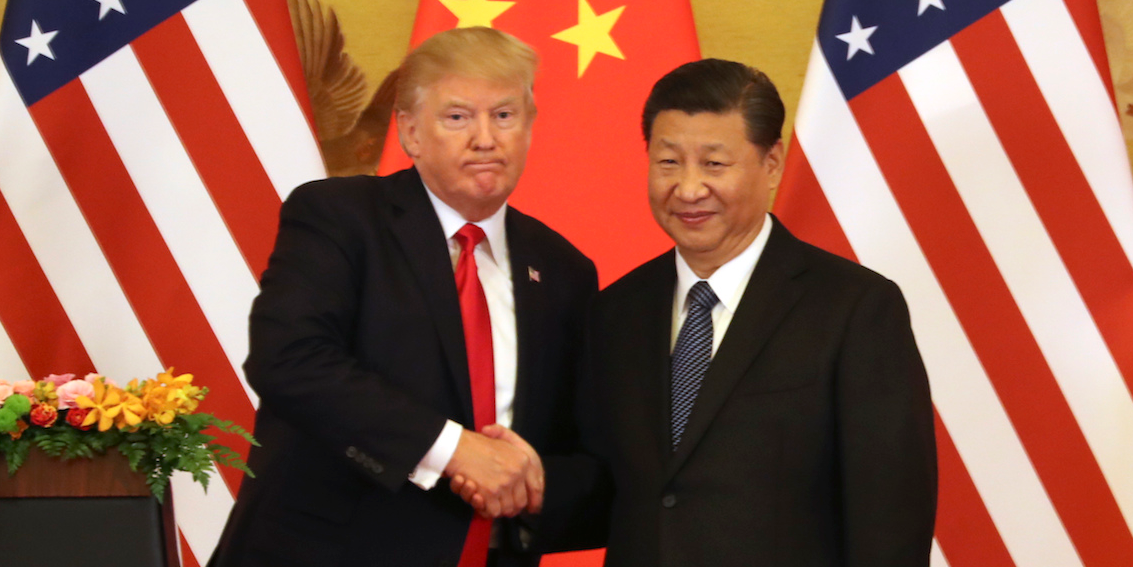- The Trump administration banned sales of US-made parts to the Chinese phone maker ZTE.
- ZTE, the second-largest telecom-equipment maker in China, generated $17 billion in revenue last year.
- ZTE said Wednesday that “the major operating activities of the company have ceased.”
- The ZTE shutdown highlights the global ramifications of Trump’s trade battle with China.
President Donald Trump’s crackdown on trade claimed a massive victim this week, as the Chinese tech giant ZTE shut down most of its operations.
The Commerce Department recently banned the sale of US-made parts to ZTE, crippling its operations and leading to a shutdown of its factories. In a statement Wednesday, ZTE said that “the major operating activities of the company have ceased.”
ZTE, the second-largest telecom-equipment firm in China, pulled in almost $17 billion in revenue last year.
The department’s move was the result of an investigation into ZTE’s sales to North Korea and Iran that the US said violated existing sanctions against those countries.
According to The New York Times, ZTE's workers are now participating in occasional training sessions, and its stock remains frozen. The company tried to quell concerns about its future in the statement.
"As of now, the company maintains sufficient cash and strictly adheres to its commercial obligations subject to compliance with laws and regulations," ZTE said.
But replacing US-made parts for ZTE's phones is a tall task. It uses Google's Android software in many of its phones and gets parts from companies like Qualcomm and Intel.
ZTE said it was working with the Trump administration to reverse the sanctions and "forge a positive outcome in the development of the matters."
The ZTE sanctions are perhaps the biggest facing a single company in the escalating trade tension between the US and China. In March, Trump imposed tariffs on imports of steel and aluminum. He later announced tariffs on $50 billion worth of Chinese goods.
China announced retaliatory tariffs. More recently, reports have suggested that the Trump administration is considering various ways to limit Chinese firms' ability to invest in the US.
The Defense Department has stopped selling goods from ZTE and Huawei, another telecom-equipment maker, on US military bases. Meanwhile, the Trump administration is considering a broader crackdown on the pair's sales in the US.
During a meeting with high-level members of the Trump administration last week in Beijing, Chinese officials reportedly brought up the ZTE crackdown and urged the US to ease up.
Amid the simmering trade fight between Trump and China, the ZTE decision represents an example of the global consequences of the fraying ties.
For instance, MTN, a South Africa-based wireless carrier with 220 million customers throughout Africa and the Middle East, said the possibility of ZTE's collapse forced it to develop contingency plans.

